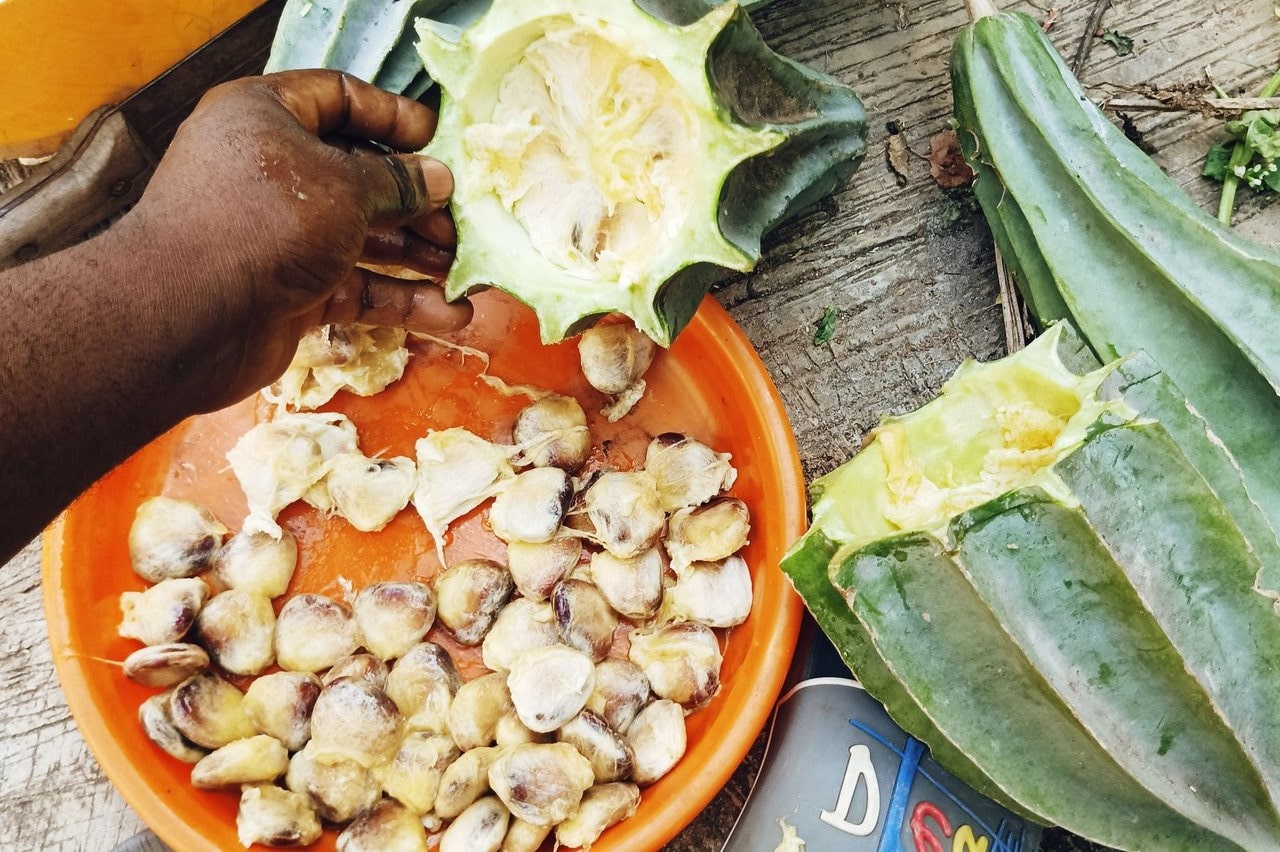
Fluted pumpkin, also known as ugu or Telfairia occidentalis, is a vegetable native to West Africa. This plant isn't just any ordinary green; it's packed with nutrients and has a rich cultural history. Ever wondered why it's so popular in Nigerian cuisine? Fluted pumpkin leaves are a powerhouse of vitamins and minerals, making them a staple in many dishes. From soups to stews, this leafy green adds both flavor and health benefits. But there's more to this plant than meets the eye. Curious about its uses beyond the kitchen? Let's dive into 15 fascinating facts about this incredible plant.
Key Takeaways:
- Fluted pumpkin, a staple in West African dishes, is a nutritional powerhouse rich in vitamins, protein, and essential minerals. It offers health benefits, culinary versatility, and agricultural importance, making it a valuable plant in many aspects of life.
- Beyond its use in delicious dishes, fluted pumpkin also provides health benefits, agricultural value, and cultural significance in West Africa. It's not just a vegetable; it's a symbol of fertility, prosperity, and community traditions.
What is a Fluted Pumpkin?
The fluted pumpkin, also known as Telfairia occidentalis, is a tropical vine grown in West Africa. It's a staple in many African dishes and has numerous health benefits. Let's dive into some fascinating facts about this unique plant.
Nutritional Powerhouse
The fluted pumpkin is packed with nutrients that make it a valuable addition to any diet.
- Rich in Vitamins: Fluted pumpkin leaves are loaded with vitamins A, C, and E, which are essential for maintaining good vision, skin health, and immune function.
- High in Protein: The seeds of the fluted pumpkin contain a significant amount of protein, making them an excellent source for vegetarians and vegans.
- Mineral Content: This plant is a good source of essential minerals like calcium, magnesium, and iron, which are crucial for bone health and blood production.
Culinary Uses
Fluted pumpkin is not just nutritious; it's also incredibly versatile in the kitchen.
- Leafy Greens: The leaves are often used in soups and stews, adding a rich, earthy flavor to dishes.
- Seed Oil: The seeds can be pressed to extract oil, which is used in cooking and as a salad dressing.
- Snacks: Roasted fluted pumpkin seeds are a popular snack in many West African countries.
Health Benefits
Beyond its nutritional value, the fluted pumpkin offers several health benefits.
- Antioxidant Properties: The plant contains antioxidants that help combat free radicals, reducing the risk of chronic diseases.
- Blood Sugar Regulation: Studies suggest that fluted pumpkin leaves may help regulate blood sugar levels, making them beneficial for diabetics.
- Anti-inflammatory: The plant has anti-inflammatory properties that can help reduce symptoms of arthritis and other inflammatory conditions.
Agricultural Importance
Fluted pumpkin plays a significant role in agriculture, especially in West Africa.
- Soil Enrichment: The plant helps improve soil fertility by fixing nitrogen, making it beneficial for crop rotation.
- Economic Value: It is a cash crop for many farmers, providing a source of income through the sale of leaves, seeds, and oil.
- Climate Resilience: Fluted pumpkin is drought-resistant, making it a reliable crop in regions with unpredictable rainfall.
Cultural Significance
The fluted pumpkin holds a special place in the culture and traditions of West Africa.
- Traditional Medicine: The plant is used in various traditional remedies to treat ailments like anemia and malaria.
- Cultural Symbol: In some communities, the fluted pumpkin is considered a symbol of fertility and prosperity.
- Festivals and Rituals: The plant often features in local festivals and rituals, highlighting its importance in community life.
The Final Scoop on Fluted Pumpkin
Fluted pumpkin, or Telfairia occidentalis, is more than just a plant. It's a powerhouse of nutrients, offering vitamins A, C, and E, along with iron and calcium. This versatile veggie supports heart health, boosts immunity, and even aids in digestion. Its seeds are packed with protein, making them a great addition to diets. Plus, the leaves can be used in various dishes, adding both flavor and nutrition.
Beyond its health benefits, fluted pumpkin plays a vital role in African agriculture and cuisine. It's a staple in many households, contributing to food security and economic stability. Whether you're looking to improve your diet or explore new culinary horizons, fluted pumpkin is worth considering. So next time you're at the market, give this incredible plant a try. Your body will thank you!
Frequently Asked Questions
Was this page helpful?
Our commitment to delivering trustworthy and engaging content is at the heart of what we do. Each fact on our site is contributed by real users like you, bringing a wealth of diverse insights and information. To ensure the highest standards of accuracy and reliability, our dedicated editors meticulously review each submission. This process guarantees that the facts we share are not only fascinating but also credible. Trust in our commitment to quality and authenticity as you explore and learn with us.


